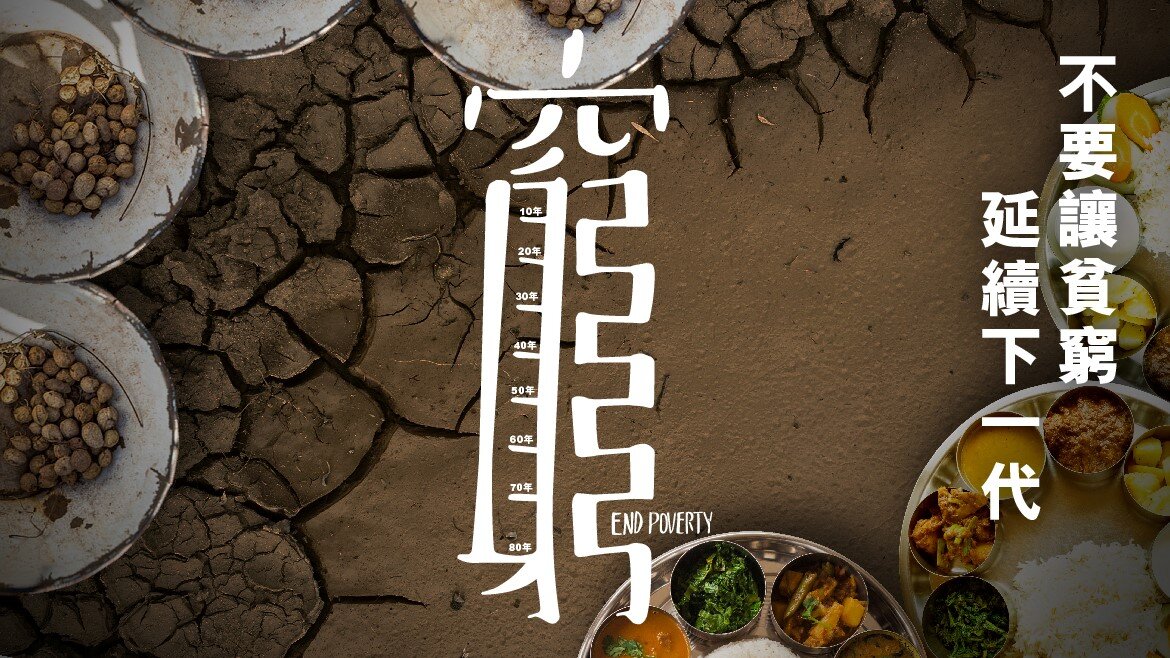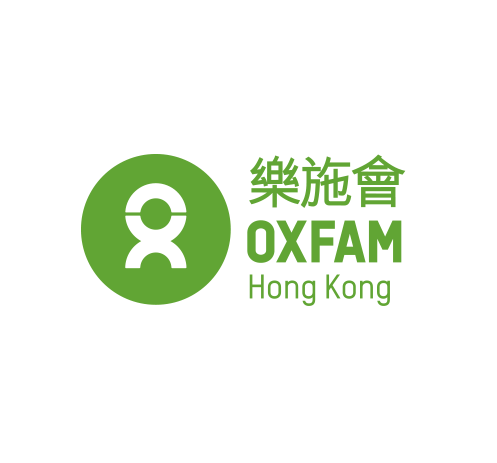Oxfam Rice Event 2019
The Oxfam Rice Event is one of the biggest annual fundraising events organised by Oxfam Hong Kong. All funds raised will go to the Oxfam Smallholder Farmers Development Fund to support smallholder farmers in poor communities around the world as they face challenges like climate change, food shortages and poverty. In 2018, over 200 organisations and 4,000 volunteers showed these farmers their support by raising over HK$250 million.
Macau: 18-19 May (20 stalls in Macau Peninsula and Taipa)
Rice Stall Locations
| 5月18-19日 |
| 米檔地點 |
| 澳門 |
| 中國銀行紅街市支行 (高士德大馬路) |
| 中國銀行龍園支行 (慕拉士大馬路龍園) |
| 茶藝軒 (醫院後街11號) |
| 利嘉閣海擎天分行 (蘭花前地16號) |
| 利嘉閣東方明珠分行(東北大馬路551–555號) |
| 三盞燈 (嘉路米耶圓形地) |
| 研教育 (台山新城巿第三街) |
| 氹仔 |
| 中國銀行氹仔花城支行 (氹仔埃武拉街388號地下,近新苗超市) |
| 花城公園 (氹仔埃武拉街) |
Limited edition Oxfam x Le Petit Prince Cutlery and Twinnings Tea set
Oxfam teamed up with Le Petit Prince this year to bring you the limited edition Oxfam x Le Petit Prince cutlery and Twinnings tea set. The cutlery set includes a cutlery wrap, a fork, spoon, wide smoothie straw and narrow straw, a cleaning brush and five Twinings tea bags (flavours will vary from set to set).
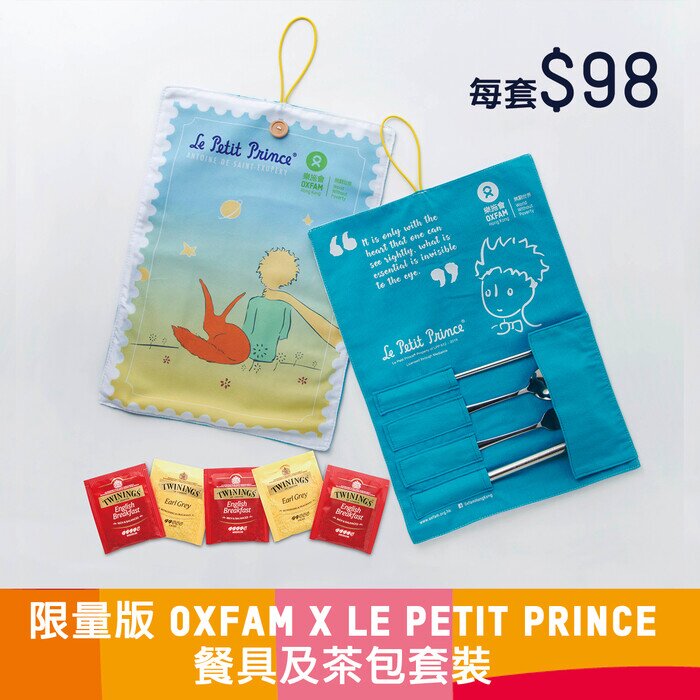
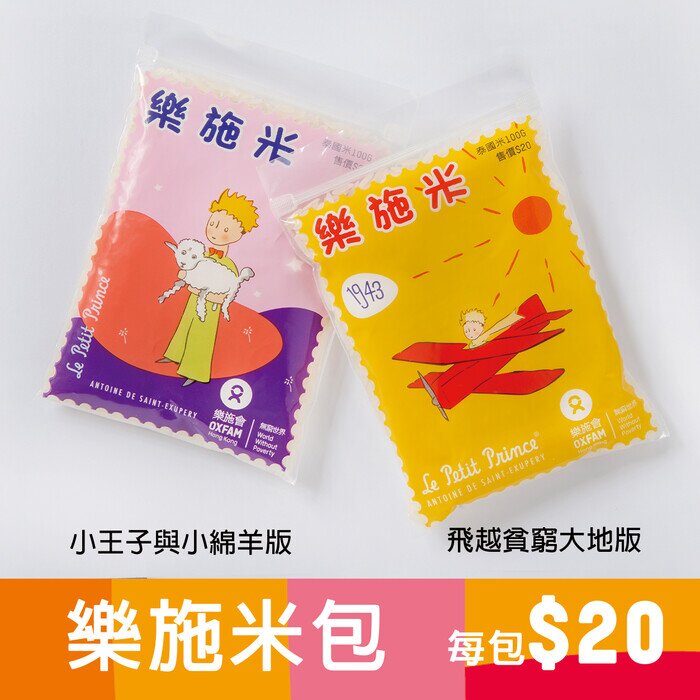
Oxfam Rice Event 2018 Photo Album


The World’s Smallholder Farmers
Nearly 90 per cent of the world’s 600 million farmer households are smallholder farmers who own small plots of land, and most of them live in the suburbs of developing countries; they use their land mostly for subsistence farming.
Currently, 800 million people go to bed hungry every night, but ironically, 80 per cent are smallholder farmers: fisherfolk, pastoralists and landless farmers who produce food. Because of their low incomes or the lack of training, smallholder farmers often only have access to outdated agricultural tools and technologies that are often inefficient and lead to low productivity.
Many smallholder farmers also lack market information, which often keeps them at a disadvantage in terms of trading, bargaining, etc. Many developing countries also attract investments from large companies, however, these often cause smallholder farmers to lose access to land, water, forests and other natural resources they rely on to make a living, which pushes them further into poverty. These challenges coupled with more intense and frequent droughts, floods, typhoons as well as the other impacts of climate change all severely hamper these farmers’ harvests and livelihoods.
Smallholder Farmers Development Fund
Oxfam has been working in developing countries like mainland China, other parts of Asia and Africa to empower smallholder farmers to gain greater market access, improve food production, enhance their disaster preparedness and improve their ability to mitigate the adverse effects of disasters. We at Oxfam have also continued to urge governments to develop policies that are beneficial to smallholder farmers. We have established the Smallholder Farmers Development Fund to ensure smallholder farmers around the world have the necessary resources to improve their lives and, in the long run, lift themselves out of poverty.
How Oxfam empowers smallholder farmers around the globe.
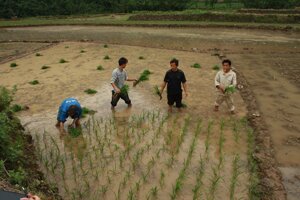
We are:
Boosting agricultural productivity
- Providing smallholder farmers with microcredit so they can purchase high-quality seeds, fertilisers and small machinery to increase their incomes.
- Offering training in advanced farming and breeding techniques to increase the efficiency in agricultural production.
- Helping to install wells, irrigation systems and septic tanks, and building roads to improve daily life for smallholder farmers.
- Encouraging smallholder farmers to participate in projects and improving their organisational skills.
Improving smallholder farmers’ market access
- Assisting in the establishment of support groups and agricultural cooperatives to strengthen smallholder farmers’ collective bargaining power.
- Providing market information, accounting and information technology training, enabling smallholder farmers to master market trends.
Improving disaster preparedness and reducing the risks disasters pose
- Providing seeds that are more resilient to various disasters to protect smallholder farmers’ livelihoods.
- Providing disaster preparedness training and enhancing their ability to adapt to climate change.
- Assisting smallholder farmers to resume their normal lives and livelihoods as soon as possible after a natural disaster has occurred.
Carrying out advocacy work globally
- Lobbying governments to invest more resources in smallholder farmers, and enhancing public services like medical services, transportation and education.
- Promoting fair trade and preventing the exploitation of smallholder farmers so that they are paid a fair price.
- Advocating for the government to listen to smallholder farmers’ opinions and formulate policies that are favourable to them.
- Raise awareness about food justice and the challenges smallholder farmers face, and promoting the sustainable development of the world.
Let’s work together to improve the lives of even more vulnerable smallholder farmers!
By donating $120 a month, in a year, nine poor smallholder farmer households will be able to receive quality seeds to increase their harvest and incomes.
By donating $300 a month, in a year, you will be able to provide 24 poor smallholder farmer households with sheep to improve their livelihoods.
By giving a one-off donation of $800, one woman living in poverty will be able to receive the tools and training she needs to learn how to keep bees and increase her income.
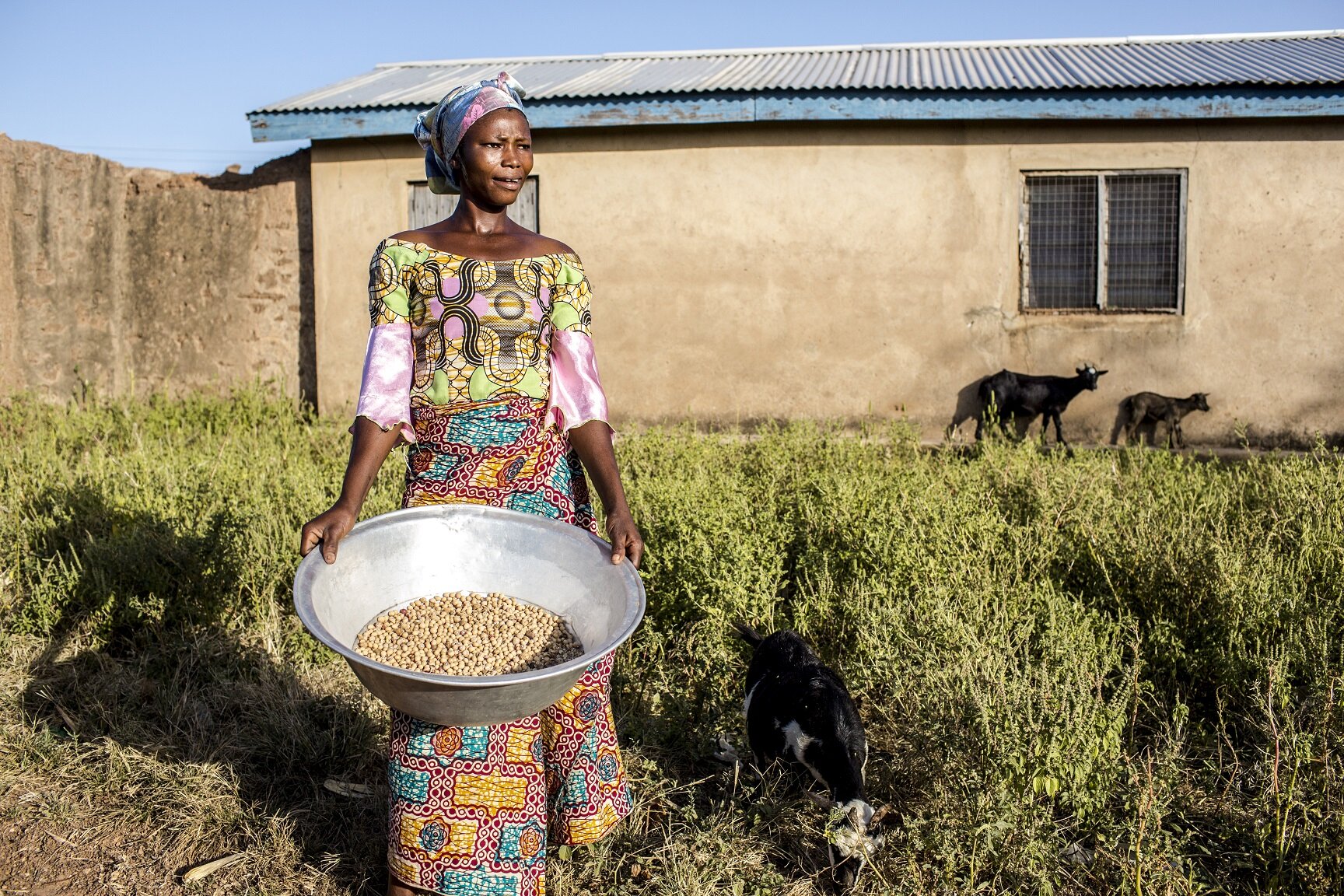
When families don’t know whether they’ll have clothes on their backs or food on the table tomorrow, how will the next generation have hope for the future?
My name is Augustina. I am a mother of three.
We live in Nandom, a poor village in northern Ghana, Africa. Here, the land is arid and difficult to cultivate, and the weather is erratic; life here is tough.
To support our family, my husband left for a job in the city a few years ago, but barely made enough. Besides taking care of my kids every day, I used to also harvest and sell shea nuts. I would process the nuts into butter. Shea butter processing is very labour intensive. It is also risky. There are lots of snakes. Despite this hard work though, I used to only be able to earn 40 cedis (around HK$60) a week selling shea butter. We couldn’t grow or buy enough food. I couldn’t get enough food to feed my children, which made me feel sad as a mother. We would survive on a cup of rice each day, which meant we each had just one or two spoonfuls. That was it.

As a mother, I hope my children can eat well, go to school, and grow up healthy and happy, but my husband and I were not able to provide enough nutrition for our children no matter how hard we worked. Before I was always worried and stressed out.
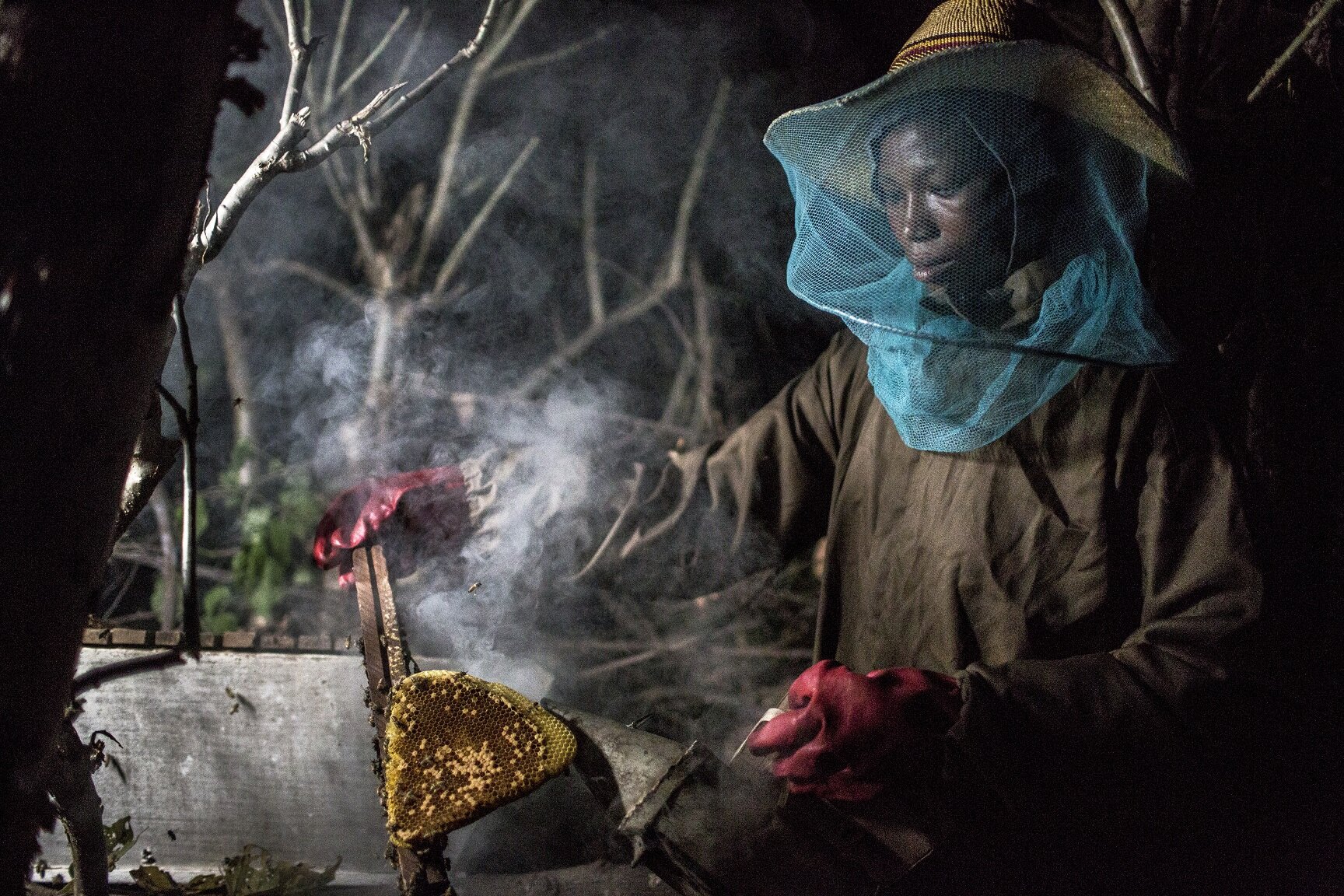
I’m so happy to be one of the first women to be involved in the beekeeping project. Through it, we received beehives, protective clothes and training. I learned how to observe the hives to see when they were fully matured and ready for harvest and how to gently remove the beeswax to bring it home for processing. Now, I am able to earn 80 cedis (roughly HK$120) in one week – double what I used to make on selling shea butter! Since beekeeping is less affected by the weather, our income is more stable. Oxfam has taught me and other women to raise livestock and compost, which has further increased our incomes and improved our livelihoods. Now, our family’s income is secure. We don’t need to go hungry anymore, and our children are now healthier. My husband doesn’t need to work in the city anymore either, so the both of us can farm, keep bees and raise our livestock. Together, we’re working hard for a better future!
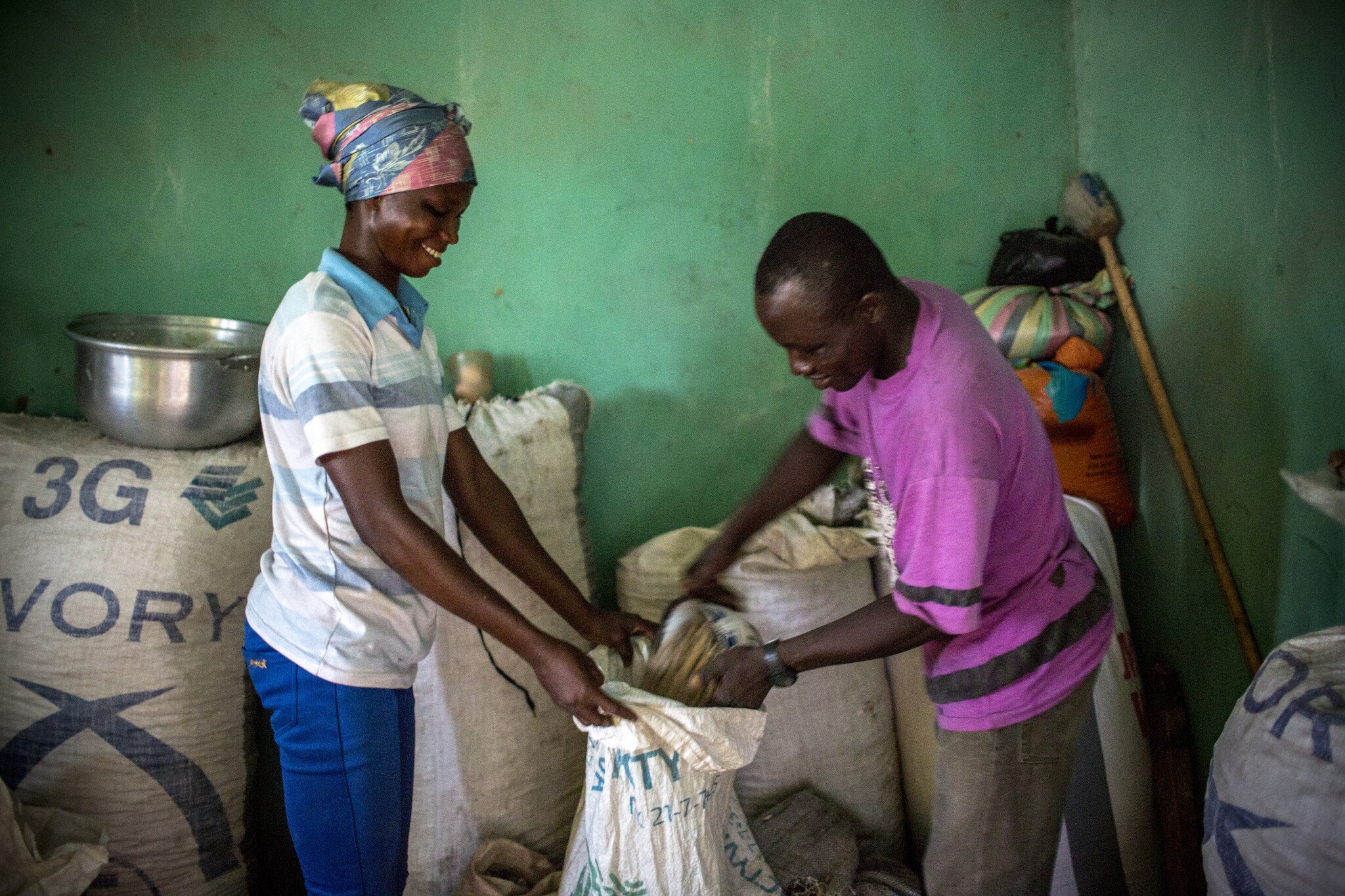
Free from the grip of poverty, their future is much brighter.
I’m really happy to see that a lot of the other families who lived in poverty like us joined the project and have seen their lives improve. They don’t need to worry about what they will feed their children anymore, and are able to send their children to school, buy books, pens and school uniforms.
When I was young, I left school early. My parents could not support me – they were farmers and were poor. That’s why I hope that my girls will grow up to be strong and independent so they can chase their dreams. Education is key to equality between men and women. Above all I encourage them to be teachers one day, because we can be more resourceful through education.
I would like to express my gratitude to the donors of this project. I can finally see my daughters’ future.
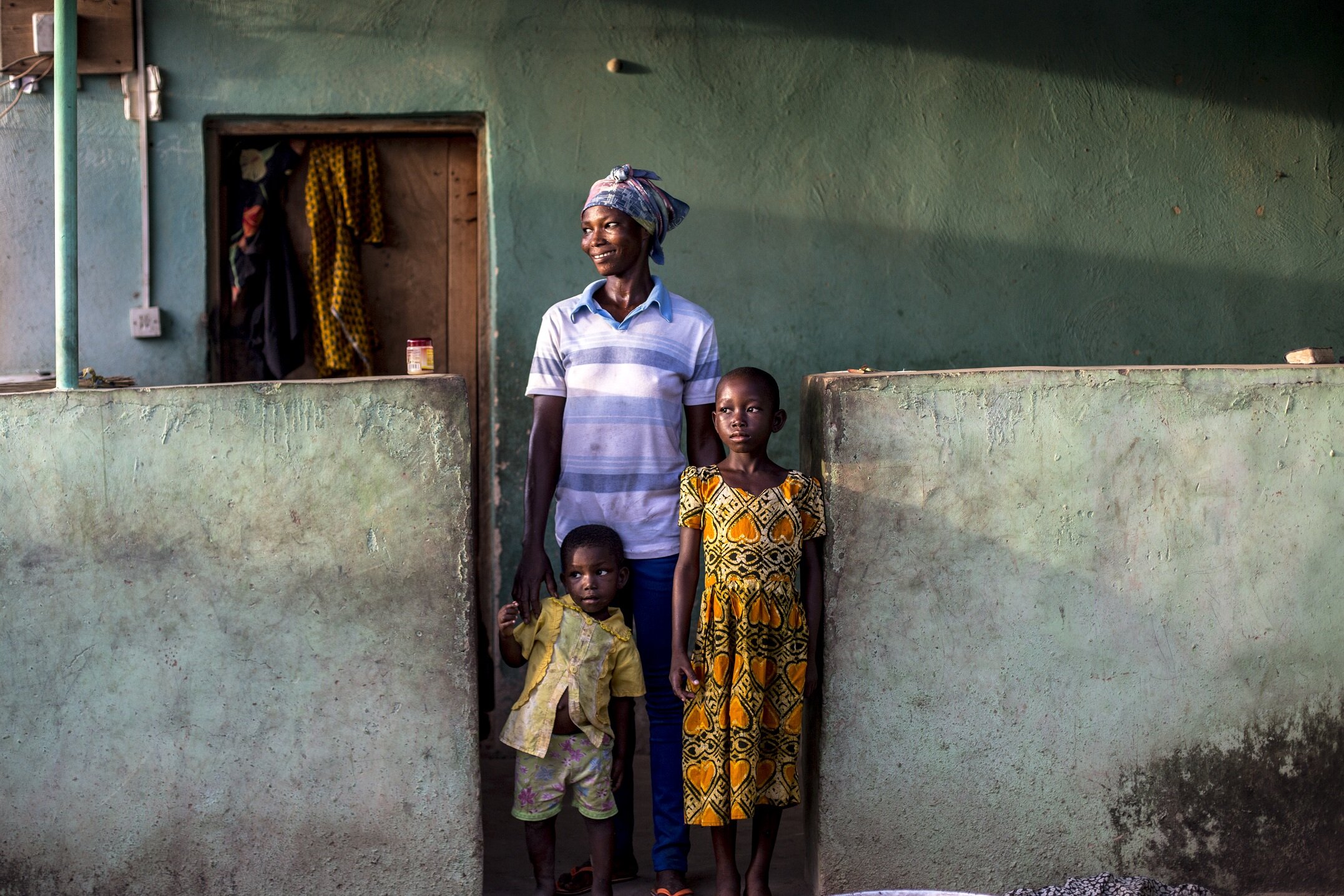
A multidimensional approach to fighting poverty
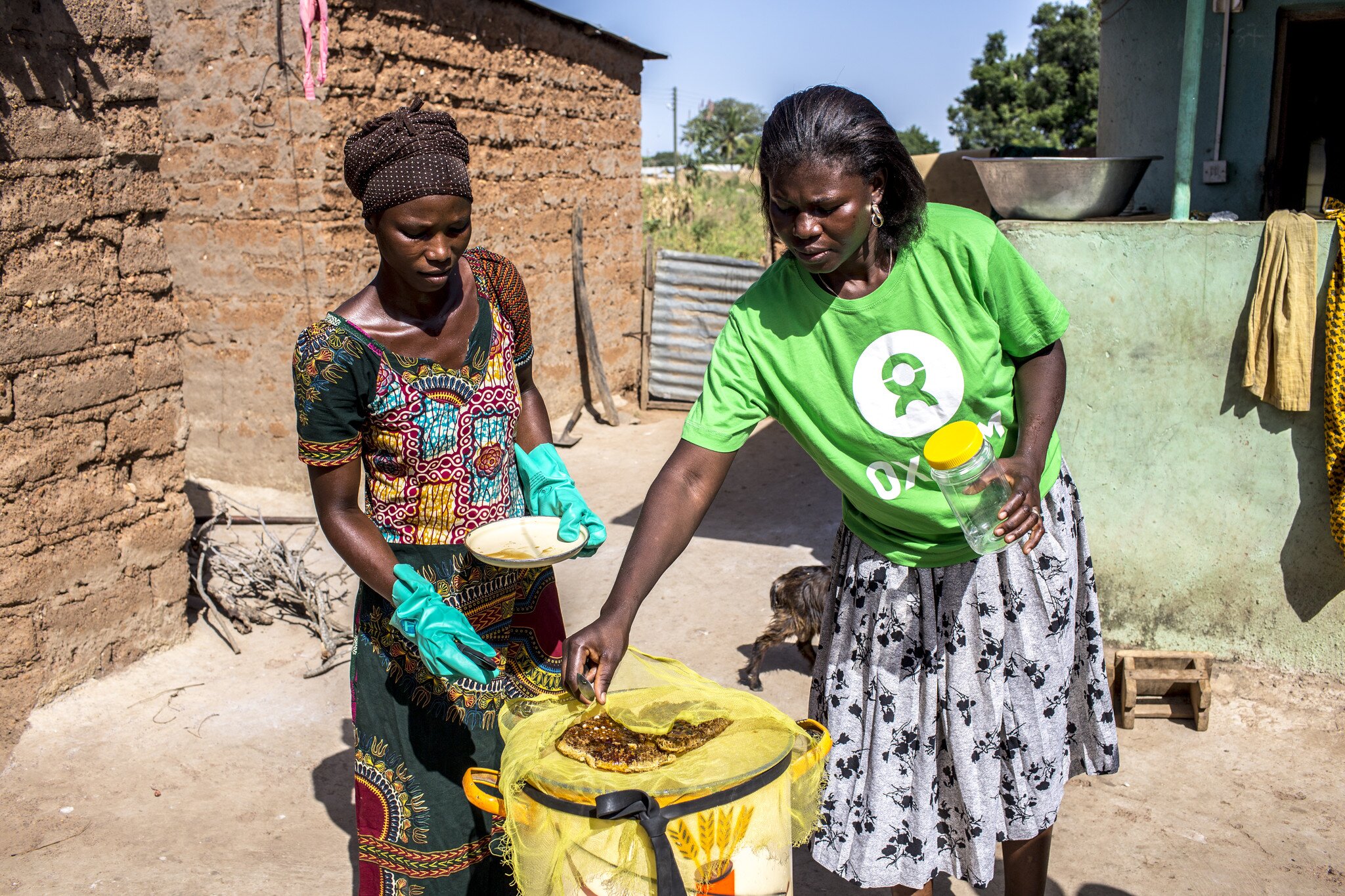 An Oxfam staff member offering Augustina with beekeeping training so she can stand on her own feet.
An Oxfam staff member offering Augustina with beekeeping training so she can stand on her own feet.
Most families in northern Ghana rely on agriculture, but climate change has made rainy season unpredictable. Families often lose their crops to erratic weather and poor communities are bearing the brunt of this. Even before climate change was an issue, over 70 per cent of agricultural households would go hungry every night for three to four months prior to rainy season.
Oxfam has been urging governments to address climate change and introduce measures that offer smallholder farmers with greater support. Oxfam is also working with these farmers on poverty alleviation projects. Initiatives thus far include:
- Fighting climate change by helping smallholder farmers diversify their sources of incomes. For instance, they learn farming and livestock rearing techniques that can help them adapt to climate change, and receive the tools and training they need to keep bees.
- Supporting women by setting up community development funds so that women are able to purchase livestock through microcredit, and providing training to improve women’s productivity and lives.
- Raising awareness about gender equality to shed light on the value of women's unpaid care work, redistribute men and women’s responsibilities in the community and family, and increase women’s labour force participation.

